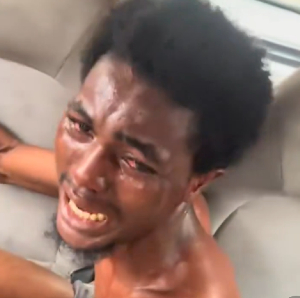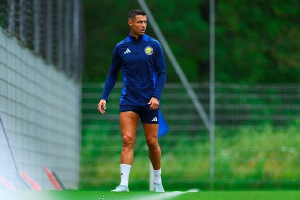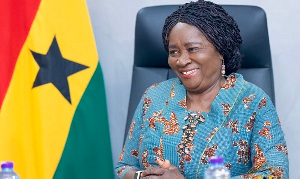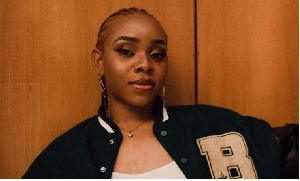In 1996, a certain wind was blowing across the arid lands of Bole. It was a wind of change. At the dawn of 1996, the people of the village of Bole came to one realisation. It was a realisation that their choice of a parliamentary candidate for the 1992 elections was a mistake. A mistake they did not want to carry into the future. This realisation was part of the increasing political awareness that was created in the minds of the people of Bole about their political rights and their concomitant responsibilities. People who disagreed with the leadership style of John Mahama’s predecessor argued that the predecessor, a rather diminutive character did not carry with him the voice capable of resonating in the walls of parliament. That voice, they argued, was not capable of championing their cause for change.
And their search for that voice continued late into the year. They finally found that voice in a young man whose genealogy was to be found in the “Jobodi Gate” of the Bole traditional area. It was a voice they had clamoured for for ages. The voice was John Mahama. Paradoxically, most of the people of the area knew nothing about John. For most us, all we knew was that he is the son of the late E A Mahama, a one time ally of Kwame Nkrumah. Of course we also knew that John Mahama is the elder brother of Adams who happened to be the campaign coordinator of John Mahama at the time. Infact, a number of months into the electioneering campaign, we did not know John and had never seen him. However, we did know, from his photo that he is the man to get the people of the area out under the shackles of under-development and to see Bole take its rightful place on the Ghanaian map. And today, 12 years down the lane, I am glad to observe that Bole has indeed assumed that place. The name of Bole has become synonymous with the name of John and only a handful of people will say that they have never heard of Bole.
In the heat of these events, I was somewhere in the tiny corridors of Bole Secondary School trying to imbibe the intricate concepts of stalactites and stalagmites in physical Geography or some pugnacious principles of calculus. I was interested in politics, but not particularly interested in who becomes the next parliamentary candidate for Bole. But that attitude was to change. One afternoon while catching my siesta after downing a bowl of “yoke gari”, I felt a tap on my shoulders. It was my entertainment prefect (I was the senior prefect) standing next to me and breathing heavily. When I asked him what the matter was, he told me that NPP was going to hold a rally on campus and that he wanted us to hold an NDC rally to counter that of the NPP.
Within minutes, word circulated that there was going to be an NDC rally. The atmosphere on campus was ecstatic. Word had it that John was in town and that it will be prudent to invite him over to address the student body. The response was quick and within minutes, John was on campus in the company of his brother in a 4 by 4 jeep. When John walked into the Geography block, the already-exuberant and ecstatic crowd jumped to their feet embracing him and singing his appellations.
That was my first encounter with John. In that Geography class in Bosec, John spelt out his manifesto. His voice was persuasive, his vision strategic and the potential results were tangible enough to deserve our votes. We saw in him a leader; a charismatic leader. Sitting next to him, I looked at him with admiration. He espoused and exuded excellent leadership qualities. In spelling out his vision for Bole, he was quick to acknowledge, like Martin Luther King that “I am not unmindful that some of you have come here out of trials and tribulations “. He also pointed out that the he was not going to promise us a garden full of roses but like Machiavelli said it was the end that was justify the means.
Today, as John ponders over the daunting challenges that lie ahead of him as a Vice Presidential candidate, the people of Bole, I believe, will be more than elated to observe that the sterling qualities they saw in John have been acknowledged by a vast majority of Ghanaians including Prof Atta Mills. The Professor has made a choice and that choice is one that will stand the test of time.
There is no denying the fact that Hon John Mahama is a national phenomenon. In my discussions with colleagues and friends of both Northern and Southern descent, I am yet to discover anyone who has said anything negative about John Mahama. He, in his own small way, has added credence to Drucker’s (1953) assertion that “leadership cannot be created or promoted”.
One quality of John which cannot go unnoticed is his refusal to rationalise that which cannot be rationalised. There is a right and a wrong and there are no ambiguities between the two extremes. This is a quality most Ghanaian politicians do not possess. In Ghana, the tendency is, and has always been, that once you are a Gonja or an Asante, you must find reason and justify everything a Gonja or Asante man does even if you find it obnoxious. John does not do things that way. In most radio discussions, he has lived above reproach. He will argue his case succinctly and where he disagrees with the position of his own party, he is not afraid to express it. That is the kind of politics Ghana needs.
If the John Mahama I know is anything to go by (and he certainly is), I dare say that Prof Mills has made the best choice; a choice he will not regret. John appeals to the North-South divide and Prof Mills will certainly enjoy working with him. While I sit here penning my views on John, I will like to remind him of the challenges that lie ahead of Ghana. The problems we face as a nation do not lie in our lack of resources. They do not lie in our lack of people with the right expertise. The problems lie in the lack of HONEST people to man what we have. The problems lie in the refusal of the powers-that-be to effect a change for fear of losing their grip on power. The problems in Ghana lie in the absence of leadership. If leadership is about change, then the two Johns will bring change.
In effecting the change that we long desire, let us not be unmindful of parochialism; that canker that gives a tunnel vision. The upcoming elections will not be fought on lies. The upcoming elections will not be fought on calumnious manifestoes. The upcoming elections will not be fought on malicious accusations. They will be fought on ideas; ideas that can stand the test of time; Ideas that are not parochial in outlook but well-prepared with the right recipes and marinated with the foresight of eventuality.
In 2008, it is not right that the poor woman who comes from the hinterlands to the city is ejected by her landlord for non-payment of rented and made homeless on the streets of Accra. In 2008, it is not right to have children of school-going age selling dog chains. In 2008, the vision is to set grand visions and follow them to the end. That is what 2008 is all about.
In ensuring that this vision is fulfilled, let us be ruled by Machiavelli’s proposition that a prince should be able to assume both the character of the “fox and that of the lion; for whilst the latter cannot escape the traps laid for him, the former cannot defend himself against wolves. A prince should be a fox, to know the traps and snares; and a lion, to be able to frighten the wolves; for those who simply hold to the nature of the lion do not understand their business”.
Congratulations John!!!
Opinions of Friday, 18 April 2008
Columnist: Yakubu, Adams Sheriff















